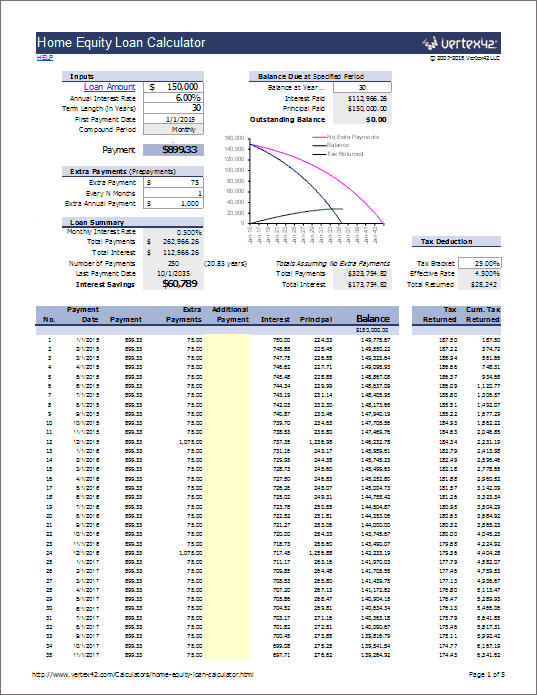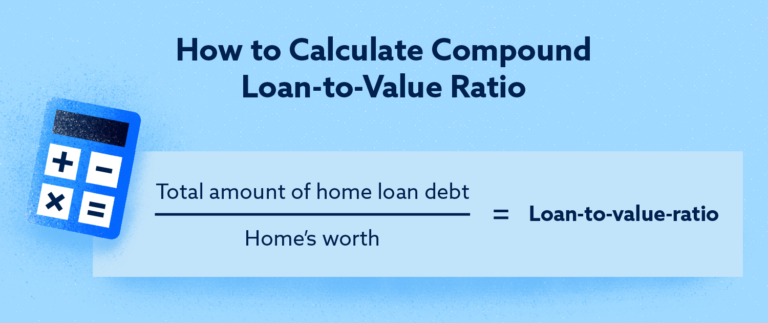Table of Content
Local real estate agents know the loan originators who do the best job for their clients. Finding the best home equity loan can save you thousands of dollars or more. Different lenders have different loan programs, and fee structures can vary dramatically. You can claim a tax deduction for the interest you pay if you use the loan to “buy, build, or substantially improve your home,” according to the IRS.

If you’re taking out a large amount, you may be able to afford a 30-year loan but be in over your head with a five- or 10-year loan. You can find out your credit score by requesting your credit reports from the three major credit bureaus. Under federal law, you’re allowed to receive free copies of your report, which can be requested through the site AnnualCreditReport.com. The biggest factor in your credit score is your payment history — so if you need to boost your score to qualify for a home equity loan, focus on making your payments on time, every time. In many cases, lenders will set a minimum credit score of 620 to qualify for a home equity loan — though the limit can be as high as 660 or 680 in some cases.
Pros and cons of home equity loans
However, the payments become substantially higher over the course of the repayment period because the principal amount borrowed is now included in the payment schedule along with the interest. Like an equity loan, HELOCs are secured by the equity in your home. Although a HELOC shares similar characteristics with a credit card because both are revolving credit lines, a HELOC is secured by an asset , while credit cards are unsecured. In other words, if you stop making your payments on the HELOC, sending you into default, you could lose your home. The equity in your home serves as collateral, which is why it’s called a second mortgage and works similarly to a conventional fixed-rate mortgage. However, there needs to be enough equity in the home, meaning that the first mortgage needs to be paid down by enough to qualify the borrower for a home equity loan.
The borrower makes regular, fixed payments covering both principal and interest. As with any mortgage, if the loan is not paid off, the home could be sold to satisfy the remaining debt. If you have a significant sum invested in CDs and hit an unexpected financial emergency, you may wish you could get at those funds without having to pay early withdrawal fees. CD-secured loans are one way to access a lump sum without actually pulling your money out of the CD. You can usually get a loan for the full amount you have invested without paying a high interest rate.
Today's National Mortgage Rates, December 21, 2022 | Rates Hold Close to 6.5%
She has been in the accounting, audit, and tax profession for more than 13 years, working with individuals and a variety of companies in the health care, banking, and accounting industries. Lev is the technology platform to digitize commercial real estate transactions. Easy-to-obtain large sums of money that you may not qualify for through other avenues. If you can’t afford to repay your home equity loan, you could lose your home. Doretha Clemons, Ph.D., MBA, PMP, has been a corporate IT executive and professor for 34 years.
You’ll at least have some peace of mind knowing your interest rate won’t change based on the housing market—unless you get a variable-rate HELOC. That’s why we created Ramsey+, a membership that gives you access to all the content and tools you need to save for emergencies, get out of debt, and build wealth. It’s helped millions of people take control of their money, and it’ll help you too.
Mortgages and Home Equity Loans: An Overview
In the United States until December 31, 2017, it was possible to deduct home equity loan interest on one's personal income taxes. As part of the 2018 Tax Reform bill signed into law, interest on home equity loans will no longer be deductible on income taxes in the United States. If mortgage rates have dropped substantially since you took out your existing mortgage—or if you need the money for purposes unrelated to your home—you should consider a full mortgage refinance. The interest rate on a mortgage can be fixed or variable .The borrower repays the amount of the loan plus interest over a fixed term; the most common terms are 15 or 30 years. A mortgage calculator can show you the impact of different rates on your monthly payment.

In the first half of the loan, you’ll make interest-heavy payments and then principal-heavy payments in the second half — this is called amortization. A home equity loan can be a better choice financially than a HELOC for those who know exactly how much equity they need to pull out and want the security of a fixed interest rate. Borrowers should take out home equity loans with caution when consolidating debt or financing home repairs.
It is an asset that homeowners can borrow against to meet important financial needs such as paying off high-cost debt or paying college tuition. Mortgages and home equity loans are both borrowing methods that require pledging a home as collateral, or backing, for the debt. This means that the lender can seize the home eventually if you don’t keep up with your repayments. While the two loan types share this important similarity, there are also key differences between the two.

A home equity loan is often referred to as a second mortgage because that's truly what it is. Often, this type of loan can be a way for homeowners to access large sums of money to pay for life's big expenses. It's not uncommon to see someone take out a home equity loan to finance home improvements, to cover medical debts, or to assist a child in paying for his or her education. Closing costs range between 2% and 5% of the loan amount, which is typically lower than closing costs on a purchase mortgage and even slightly lower than closing costs on a cash-out refinance. A home equity loan functions much like a mortgage where you’re provided a lump sum up at closing and then you begin repayment. Every month, you’ll make the same payment amount, which is a combined principal and interest payment, until your loan is paid off.
For example, if you have a student loan payment of $400, a car payment of $300 and a mortgage of $1,800 and make a salary of $75,000 per year (or $6,250 per month), your debt-to-income ratio stands at 40%. Though criteria may vary slightly by lender, there are basic home equity loan requirements that you’ll need to meet to qualify regardless. If you’re deciding whether a home equity loan is right for you, we’ll walk you through the requirements and what you need to know. Our affordable lending options, including FHA loans and VA loans, help make homeownership possible. Check out our affordability calculator, and look for homebuyer grants in your area. Visit our mortgage education center for helpful tips and information.

Home equity loans can be a convenient resource for homeowners who want to access a portion of their equity. Just remember that if you’re consolidating debt from a credit card or personal loan into a home equity loan, you’re exchanging unsecured debt for secured debt. While you’ll likely lower your interest in the process, if you don’t pay back the money, your home is at risk. Leaving your debt in an unsecured vehicle like a credit card eliminates that risk, though you can still suffer negative consequences if you don’t pay your debt, no matter what form it’s in.
A lender must assess whether they believe you’ll repay the home equity loan on time. Mortgage “points,” or loan discount points, are prepaid interest that reduce your rate on most loan types. Points cost more upfront, but may make sense long-term to save on interest.
And unless you have a giant pile of money sitting in your savings account, you may need to borrow the cash to fund that renovation. Compensation may impact the order of which offers appear on page, but our editorial opinions and ratings are not influenced by compensation. Take control of your financial future with information and inspiration on starting a business or side hustle, earning passive income, and investing for independence. When borrowed intentionally, a home equity loan or HELOC can be a great financial tool to help you achieve your goals in 2023.
Homeowners seeking money to meet their financial needs can take out a home equity loan or secure a home equity line of credit. Home equity borrowing costs are usually less than those for credit cards or personal loans. Lenders look for borrowers who are lower risk, so they set these requirements for home equity loans. When applying for a home equity loan, you must show that you can repay your debts by meeting standards for credit scores, home equity levels, and more.

A HELOC could be a better option if you prefer to borrow over time instead of in a lump sum. HELOCs also come with variable interest rates like credit cards, although they’re secured by the collateral in your home. Like home equity loans, HELOCs also limit your borrowing power to up to 85% of your home’s value.

No comments:
Post a Comment